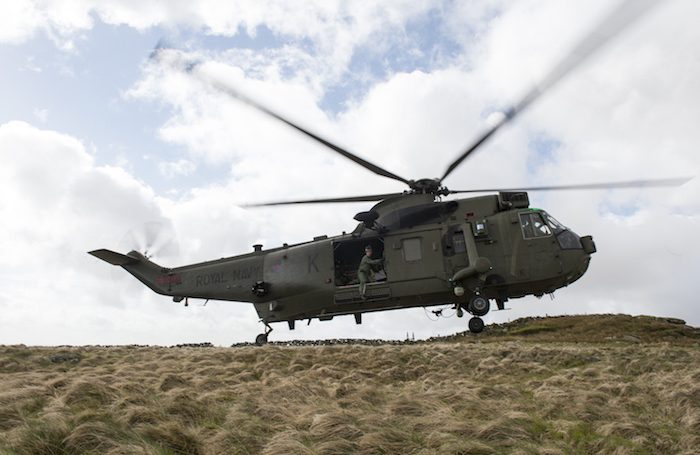
The annual UK – French Summit was held last month at the Royal Military Academy Sandhurst, coming at a time when European defence could go one of two ways. Either the present model continues, based around trans-Atlantic nuclear guarantees of European security, upheld by NATO; or a shift in the balance of power from Anglo-French to German, both in economic terms once the UK has left the European Union, and in very real military terms centred around a German controlled ‘European Army’.
Traditionally these summits held between the heads of government of both France and the UK, and their cabinet colleagues, have focused on security and defence, this year proving no exception. Leaving Brexit aside for a moment, it is important to consider the historical precedent and subsequent wider political environment.
Anglo-French relations go back hundreds of years, solidified in the First World War. Increased cooperation emerged as a direct result of shared norms and values held with the French; equality, liberty, freedom from oppression. This cooperation led to an increase in shared strategic military objectives, from Suez through to Libya in 2011. Whilst these ventures were not always successful, a shared understanding and appreciation of the others’ defence and military capabilities became ingrained into one another’s foreign policy and geostrategy.
This culminated in the 2010 Lancaster House Summit and subsequent treaty. Implementing measures to build on commitments made in the 2010 Strategic Defence and Security Review, the treaty including the creation of a stronger strategic defence relationship with the UK’s main allies, especially those whose security interests and military capabilities are closest to our own; namely, France.
The UK and France are unequivocally Europe’s top two military powers. Both nuclear-armed states, they are permanent members of the United Nations Security Council, the G7 and G20. As such, they are the only European states which have the means to project their military anywhere in the world and have an effect.
This partnership has led to increased military ventures over recent years. It was France and the UK, not the United States, who were the main driving force implementing UNSC resolution 1973 in Libya in 2011. More recently, there has been important military cooperation among one another. The UK has contributed a strategic airlift capability to Operation Barkhane, France’s ongoing intervention against Islamic militants in the Sahel region of Africa, and has recently further committed three Chinook transport helicopters and 50 – 60 support personnel. France meanwhile are providing several hundred troops for Britain’s battlegroup deployed in Estonia, part of NATO’s Enhanced Forward Presence deterring Russian aggression to NATO’s eastern flanks.
A further precedent set by the Lancaster House treaty is the creation of the Combined Joint Expeditionary Force (CJEF), made up of 10,000 personnel from both countries, it will be able to operate independently of NATO to achieve bilateral strategic goals. Maintaining naval supremacy, a maritime capability centred around the aircraft carriers Charles de Gaulle and the Royal Navy’s HMS Queen Elizabeth will be able to deploy around the world together, crucial in maintaining maritime security, as well as deterring external state aggression.
As their capabilities reveal, unilaterally, bilaterally and as part of NATO, France and the UK are, along with the United States, the key custodians of European Defence. This is not just demonstrated through increased military partnership, but also through defence spending.
Most EU member states are also members of NATO, and as such, are bound by the convention, ratified at the 2014 Wales Summit, to commit 2% Gross Domestic Product (GDP) to their defence budget, which goes towards the collective defence of Europe. Between 2012 – 2016, the majority of NATO member states fall some way short of this target. The UK has in fact ‘overpaid’ beyond the target by $23 billion during this period. Germany, despite its large industrial economic base, has consistently fallen short in defence spending. The previous five years, it has missed its defence obligations by $142 billion, 39% below its target; defence accounting for a mere 1.2% of GDP.
These figures have very real ramifications, Germany is not a great military power, its defence budget dwarfed by the combined spending of the UK and France; £32 billion compared to £68 billion. Germany has long been reluctant to get involved in military affairs. Due to historical reasons, it is considered politically unfeasible raising the defence budget to even anything approaching the NATO standard of 2% of GDP.
As a consequence of Germany’s reduced spending levels on defence, Berlin has recently made the case for the requirement of increased European defence cooperation. The Framework Nations Concept (FNC) is a joint military cooperation policy, culminating last year in the inclusion of Dutch, Czech and Romanian military units into the Bundeswehr for military manoeuvres. Complementing both the proposed European Intervention Initiative (EII), put forward last autumn by President Macron, and the idea of an eventual inclusion of a federal ‘European Army’ held by the European Commission, these policies would have disastrous effects for British influence once it leaves the EU.
This brings us to Brexit. Once Britain leaves the EU in 2019, Germany will be poised to become the European hegemon. The issue here is that Germany will seek to utilise the EU for its own domestic economic goals. Coupled with an increase in a wider European defence partnership, through successful implementation of either the EII or Germany’s FNC, this would leave the UK at a highly disadvantageous position once it leaves the EU, just at the precise moment when it needs to be strengthening its image abroad through the maintenance of the international order and, crucially, European defence through increased partnership with France.
Further Reading on E-International Relations
- Post-Brexit EU Defence Policy: Is Germany Leading towards a European Army?
- Brexit and the 2019 European Elections
- Grexit and Brexit: Lessons for the European Union
- The Decline of the SDLP and their European Election Brexit Headache
- Brexit: Can the Commonwealth Fill the Gap?
- An ‘Expert’ Perspective on Brexit… Means Brexit